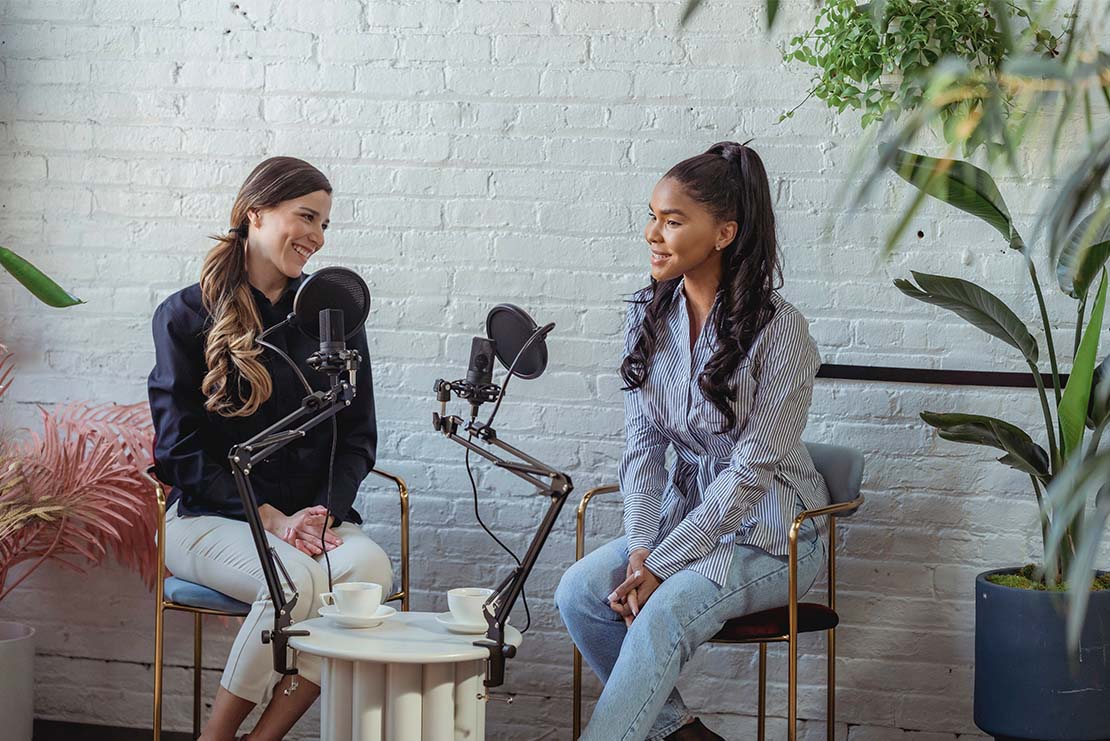7 awesome reasons to polish your interview skills
7 awesome reasons to polish your interview skills
So, you want to start a podcast, blog or YouTube series, either for your business or as a personal project. Your interviews with interesting subjects should be a major part of this plan, because people are so incredibly interesting.
Whether you’re interviewing CEOs, kickboxers, refugees or anyone else, no two interviews will be the same. Think of different interviews with the same person over the years – whether it’s the evolution of a child star (Miley Cyrus and Justin Bieber come to mind), or people whose entire public personas have transformed (Arnold Schwarzenegger, Gwyneth Paltrow and Martha Stewart, for example).
Interviews will also differ depending on your rapport with the interviewee. When you have a genuine connection with someone, you’ll feel like an interview supremo. But that confidence boost can be shattered to bits if your next interviewee speaks in monosyllables and yawns, testing your every ability to draw out insights.

Regardless of your interview skill level, here are 7 things that we think writers everywhere will agree are great benefits of becoming an interviewer.
- Fresh insights – You’ll always learn something of personal interest from your interviewees, whether it’s a fresh approach to a common problem, or a secret skill. Think of Jeff Bezos explaining Amazon’s now-famous meeting rules to Charlie Rose (his execs don’t use PowerPoints!), or Kendall Jenner demonstrating her ultra-realistic bird whistles on James Corden’s show.
- Unique content – So much content online is basically a riff on what others have already created. But that’s not the case with interviews. The originality of your interviewees’ words and the unfolding of their story creates something fresh each time.
- Meaningful connections – On the more selfish side of things, interviewing is a good way to meet someone you’ve always wanted to speak with, without asking them for anything. In fact, when you have an established audience, you’re actually giving them something nice: friendly publicity. It’s literally a case of how to win friends and influence people, just like the old book suggests.
- Wider audience – Interviewing also helps to boost your profile to an informed set of listeners. Research has found that podcast audiences, for example, are young, educated and affluent. These people tune in to boost their mood, so you can be assured you have a captive audience who will remember your name and refer your content to others.
- Self-awareness – Ultimately, an interview is a conversation between two humans. It can be emotional: heart-rending, funny, insightful. But on occasion, you’ll have deeply opposing views on a subject. Interviewees who have had heated exchanges with their hosts include Julian Assange, Paris Hilton and Kanye West. All of this presents an opportunity to know yourself better as a person.
- Business opportunity – Audio content is a booming business. A 2022 PricewaterhouseCoopers report has estimated that revenues from podcasts will almost double in the next few years, a large part of that due to dynamically placed ad insertions. Some podcasts offer subscriptions and access to your services, a clever strategy given your captive audience. So essentially, you could be developing a valuable new side hustle (for yourself) or a revenue generator (for your business).
- Life skills – Many interview skills translate well to conversations in everyday life. An example is actually listening to a person’s response, rather than planning what you’ll say next. Another skill is learning to speak in two or three-sentence bursts rather than 5-minute monologues, to keep the rapport flowing and the conversation fluid.
Practice definitely makes you a better interviewer, especially when you get feedback from qualified peers and experts. CCE’s Interview Skills and Article Writing course takes you through the essential steps in one day and you’ll even leave with a neat little draft of your story. If you’re more the behind-the-camera (or mic) type, try your hand at documentary making instead.
All you need now is a concept for your series, and a list of people you want to interview.
Featured courses
This course aims to give content creators and researchers more confidence in interviewing a range of subjects, using classic journalism techniques.
Learn moreDevelop professional standards whilst making your own documentary. Learn how to master your production equipment for best results, including cameras, microphones and editing software.
Learn more